Hesburgh's Legacy
Civil Rights Rally at Soldier Field, June 11, 1963. (Notre Dame Archives)
We have to offer leadership because it's not just something we profess as a casual thing, it's our faith....We do believe deeply in these matters and they're a matter of our total profession of faith in the dignity of human beings."
~ Father Hesburgh
The Report
The report from the Civil Rights Commission 1959 (crmvet.org)
When the Commission reported to Eisenhower their recommendations, he didn't understand how a divided group could vote unanimously on 11 of 12 recommendations and 5 to 1 on the 12th. "I told Ike that he had not appointed just Republicans and Democrats or Northerners and Southerners, he had appointed six fishermen" (Theodore Hesburgh) Without Hesburgh on the Commission the members may have never come to an agreement and Civil Rights might have been delayed for years into the future.
Two important pieces of legislation were passed after the Commission's first report.
The Civil Rights Act of 1960 established federal inspection of voter registration polls.
The Civil Rights Act of 1964 prohibited discrimination and segregation in all forms.
These acts allowed for politcal change in the South now that African Americans weren't being restricted through legal loopholes.

Eisenhower signs the Civil Rights Act of 1960 (Eisenhower Library)
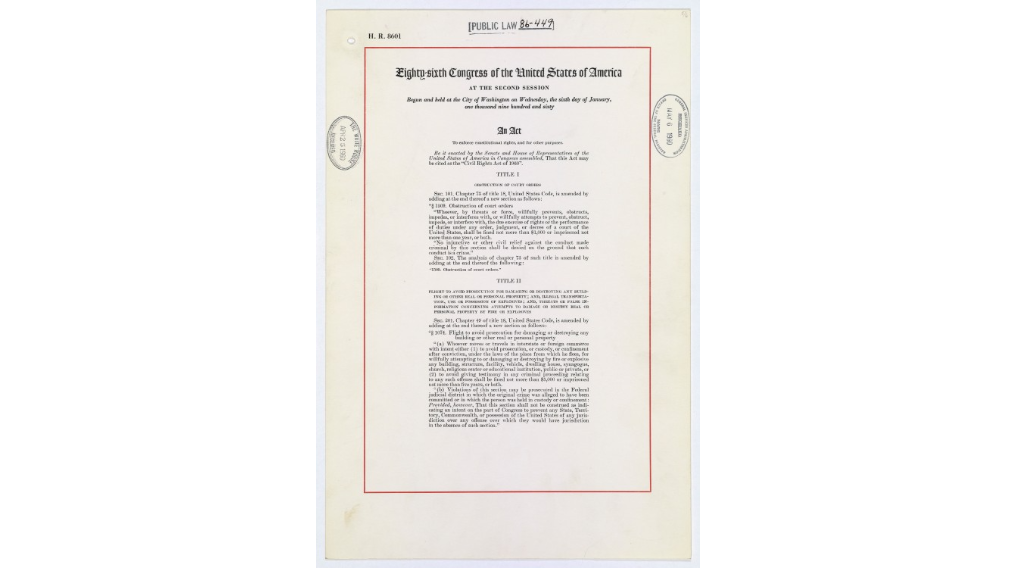
Civil Rights Act of 1960 (National Archives)
Civil Rights Act of 1964 (Our Documents.Gov)
Jennifer Mason McAward, Associate Professor of Law, University of Notre Dame (Interview, 5/11/2021)
The Continuing Mission
Hesburgh accepted an invitation from Martin Luther King, Jr. to a rally at Soldier Field in Chicago. He told the people gathered "We want to strive for dignity with you" (Hesburgh). He then grasped arms with King and sang "We Shall Overcome."
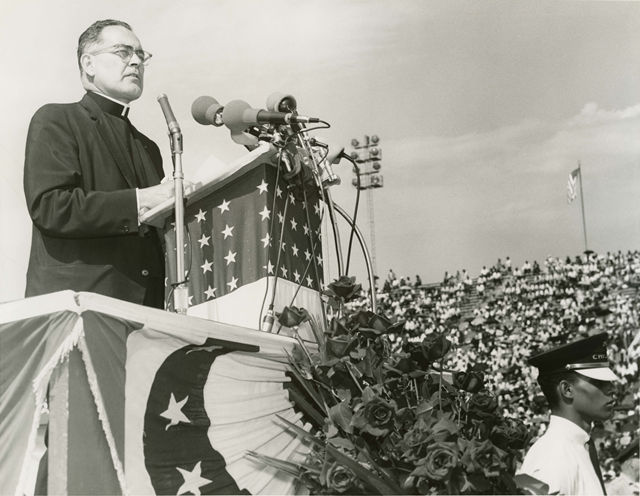
Hesburgh giving speech at Soldier Field, June 11, 1963. (Notre Dame Archives)
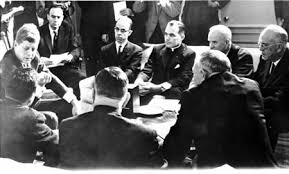
President Kennedy and the Civil Rights Commission during a White House conference, November 22, 1961. (Notre Dame Archives)
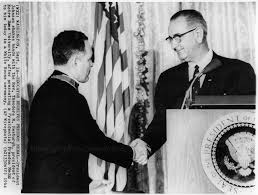
President Johnson shakes hands with Hesburgh after presenting the Presidential Medal of Freedom to him in a White House ceremony, September, 1964. (Notre Dame Archives)
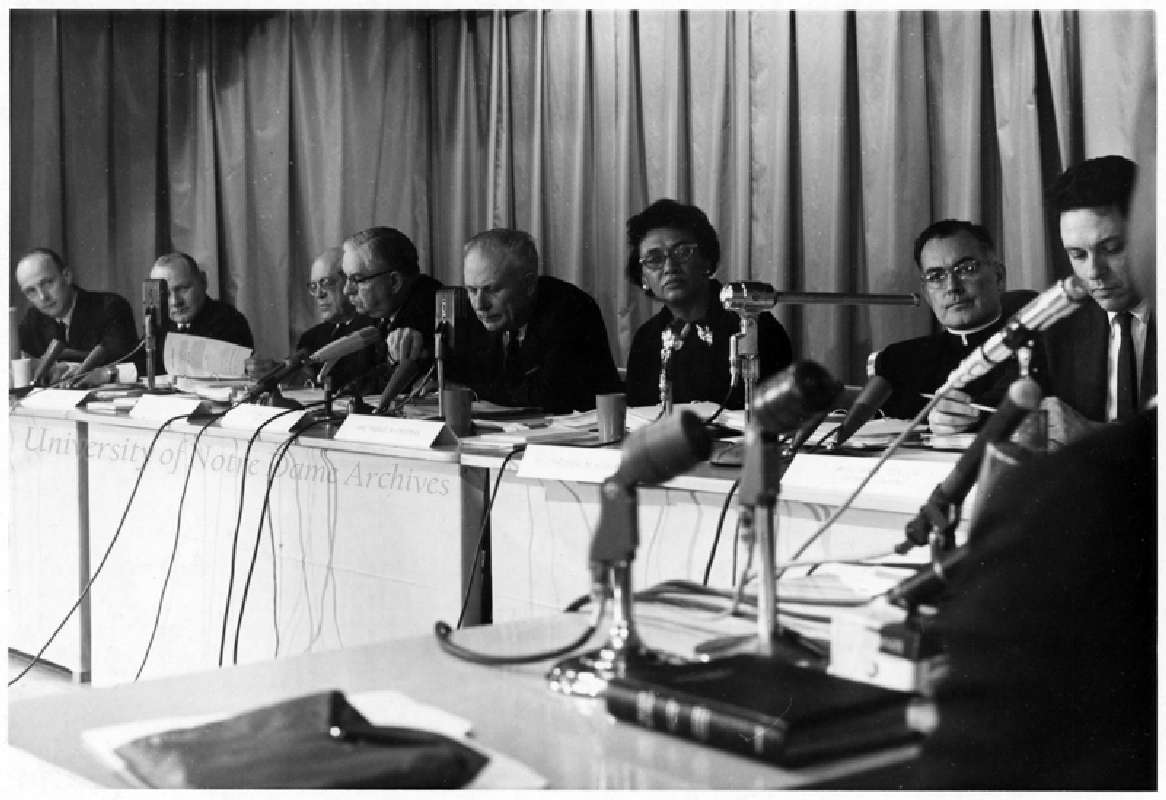
Hearings in Jackson, Mississippi, 1965. (Notre Dame Archives
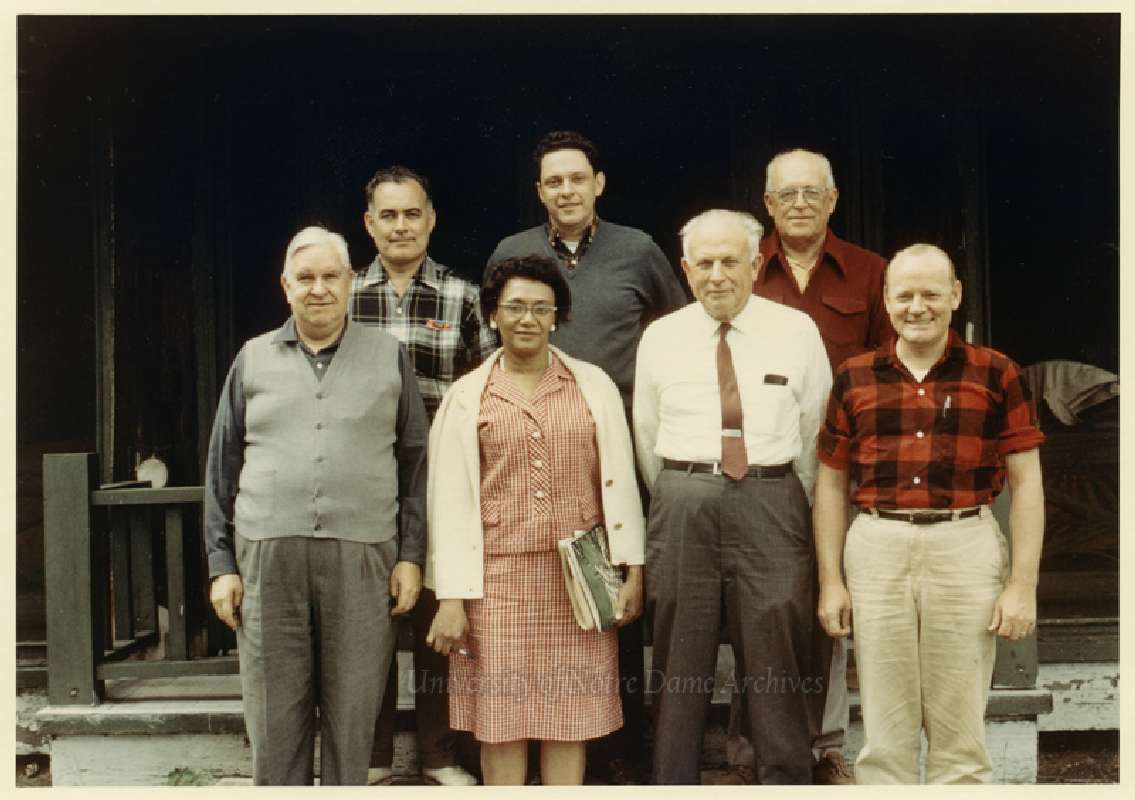
The Civil Rights Commission at Land O' Lakes, Wisconsin, July, 1966. (Notre Dame Archives)
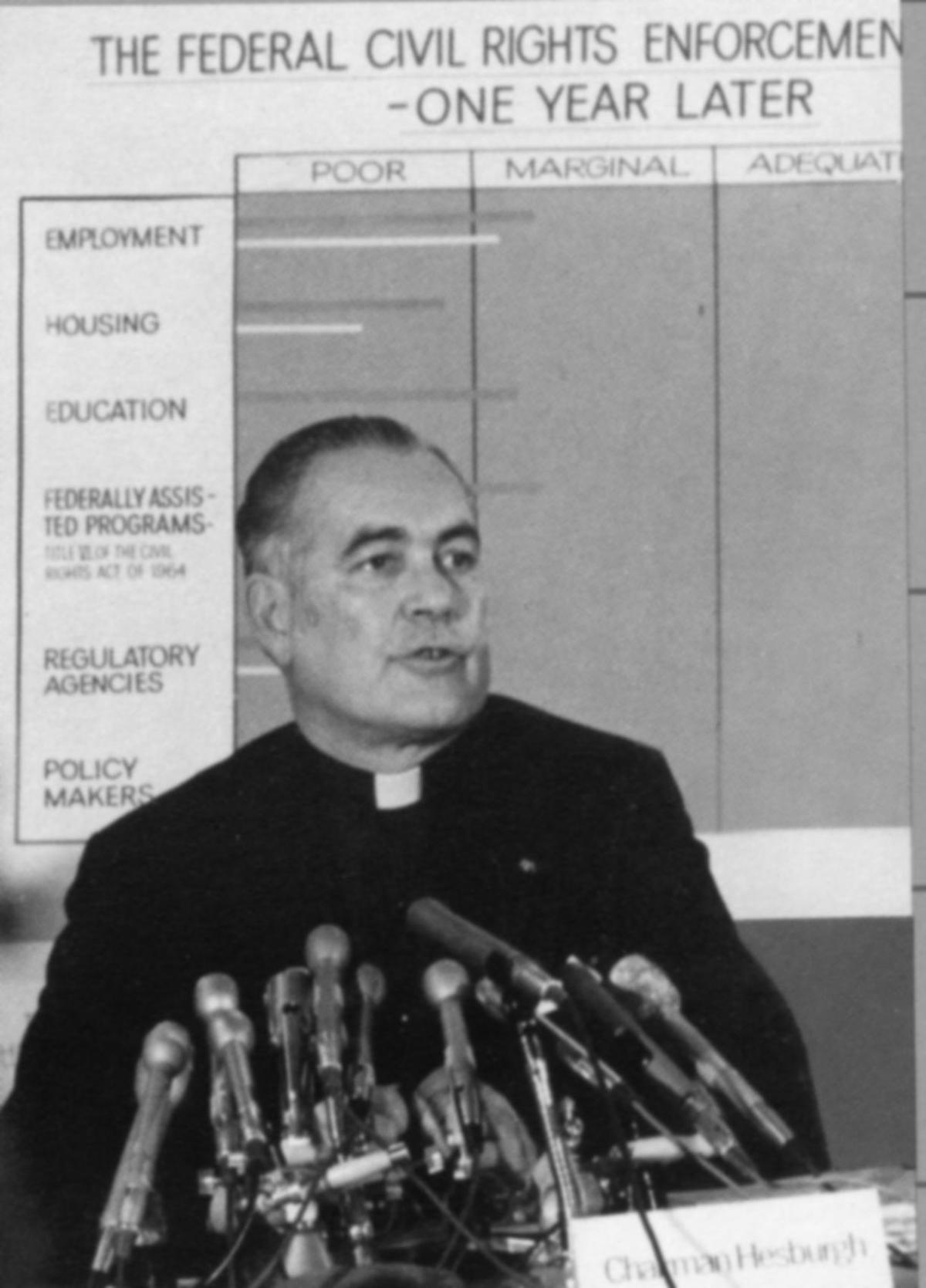
Hesburgh speaking in a news conference regarding the Nixon administration and the lack of civil rights enforcement, 1972. (Notre Dame Archives)
Hesburgh's time with the Commission opened his eyes to the plight of many people across America, and it became a centerpiece to continue pushing for civil and human rights for the rest of his life.
Andrew Young, Civil Rights Leader (Notre Dame.Edu)
Copy of letter from Nixon accepting Hesburgh's resignation.
(Notre Dame Archives)
Hesburgh remained on the Civil Rights Commission until he conflicted with Richard Nixon, who asked for him to delay a report. "If the facts hurt, then the administration should get busy and do something to correct the causes," Hesburgh responded. Nixon asked for his resignation ending 15 years of service.
Hesburgh's Response to Resigning & Thoughts on Civil Rights, 1973
(Notre Dame Archives)
The Klau Center - His Legacy
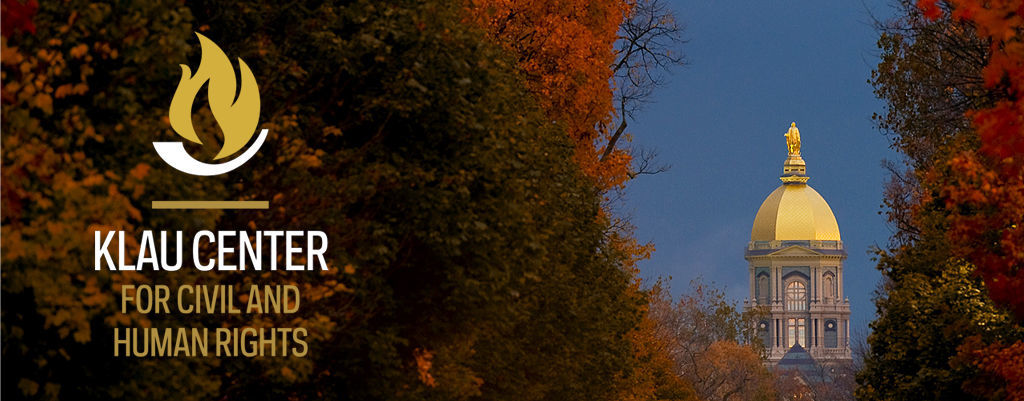
Klau Center at Notre Dame (ND.EDU).
After Hesburgh resigned from the Commission, he wanted to continue to impact the battle for civil rights, so he created the Klau Center, a division of Notre Dame's law school. It opened in 1973 with a goal to develop leaders focused on advocating for the dignity and justice for all people. "We seek to make the study of civil and human rights a centerpiece of education at Notre Dame. Through support of research and curricular development, we seek to broaden our understanding of these issues." (The Klau Center) Through the Klau Center, Hesburgh was able to communicate his vision and expand his mission to build bridges and bring people together for generations of students. It takes his mission and expands it exponentially.
Jennifer Mason McAward, Associate Professor of Law, University of Notre Dame (Interview, 5/11/2021)
“It is time to begin anew, perhaps with more realism and less naivete this time, to commit this country to be what it professes before all the world to be. If this means afflicting the powerful, the smug, the leaders who do not lead, the complacent, those who have never had it so well, so be it.”
-Father Theodore Hesburgh
Father Hesburgh delivering a Notre Dame Commencement Speech (Notre Dame.EDU)